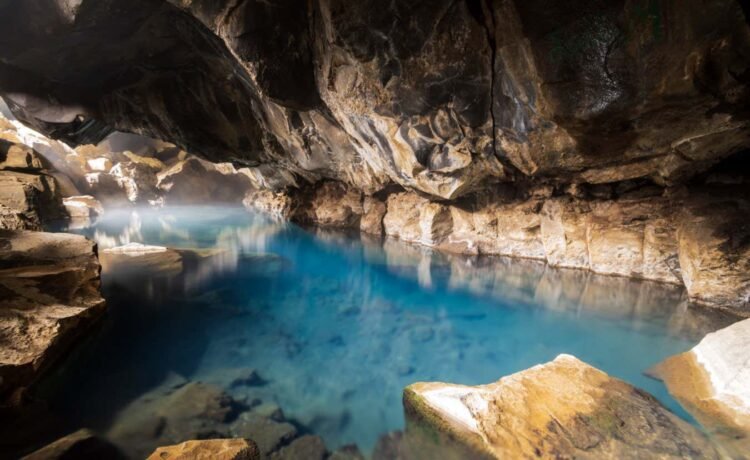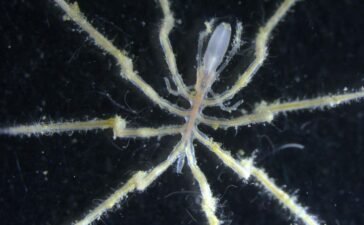Why the underground home of the world’s weirdest wildlife is in danger


A lava cave in Iceland is a tiny part of a vast, underground habitat found around the planet
TOMMY AU PHOTO/Getty Images
One moment Stefano Mammola is standing in a mossy forest overlooking northern Italy’s Po plain. The next, he has vanished through a hole little wider than his body, into the forest floor. With less grace, I clamber after him, landing in a pit 2 metres below. A tunnel ahead is the gateway to a 3-kilometre-long cave network. As I falter, Mammola, a cave biologist at the Water Research Institute in Verbania, Italy, encourages me with tales of an exotic spider living deep inside. It has cocoon silk that can stretch to more than seven times its length without breaking – outstanding even by arachnid standards.
Superstrong silk is just one of the ways life has adapted to Earth’s most extensive and unexplored terrestrial ecosystem: the caves, fissures and tiny gaps beneath its crust. Scientists have spent the past few decades exploring these remote locations and cataloguing and probing the creatures within. Now they are raising the alarm.
Until recently, it was assumed that this subterranean life would sit out climate change relatively unaffected, in cool seclusion. But new research has shot down this belief. Warmth, drought, seasonal change and rising seas are all reaching into underground refuges, leaving their occupants uniquely stranded. Yet our ignorance of these fantastical creatures is vast. Mammola is so concerned that he has coordinated a project aiming to map the entire subterranean ecosystem of Europe, reveal what biodiversity is present and figure out where to prioritise conservation efforts. This weird and wonderful world is…
You Might Also Like
X-ray boosting fabric could make mammograms less painful
Mammograms can be painful, but they may not need to beDaria Artemenko/Alamy Getting an X-ray can be uncomfortable – you...
Women’s pelvises are shrinking – how is that changing childbirth?
Medical advances have changed childbirth – potentially enough to impact human evolutionFatCamera/Getty Images Women’s pelvises have become narrower over the...
Sea spiders ‘farm’ methane-eating bacteria on their bodies
Sea spider from the genus SericosuraBiance Dal Bó Spider-like creatures living near methane seeps on the seafloor appear to cultivate...
28 Years Later review: Danny Boyle’s long-awaited zombie sequel is a triumph
An infected in 28 Years LaterMiya Mizuno/Sony 28 Years Later Directed by Danny Boyle, written by Alex Garland In cinemas...









